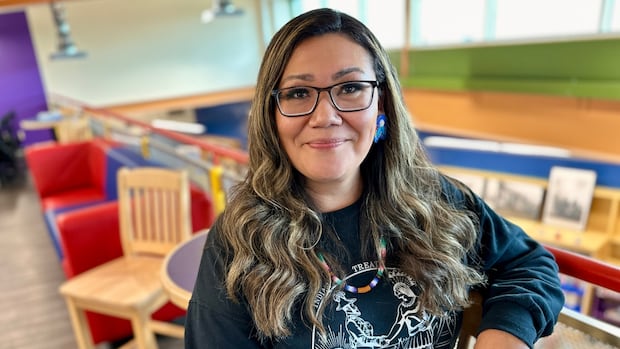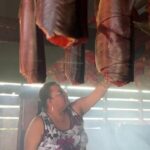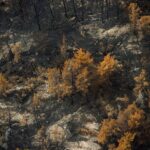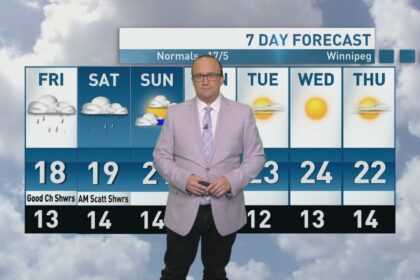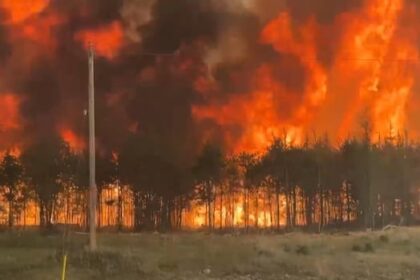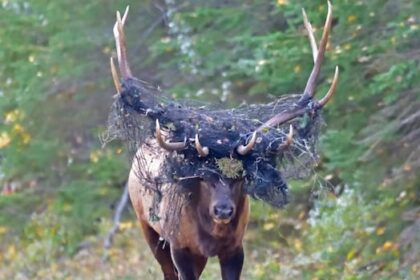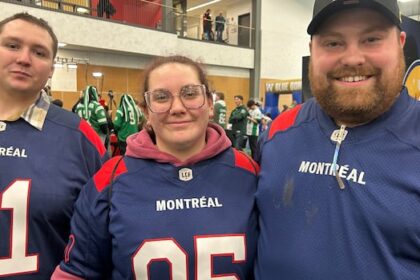EdmontonAn Alberta history project called Voices of Frog Lake has received a ringing endorsement and financial boost in the form of a $180,000 grant from Heritage Canada.’This is an opportunity for families to hear what their grandparents have to say’: library chairAdrienne Lamb · CBC News · Posted: Sep 03, 2025 9:01 AM EDT | Last Updated: 3 hours agoFrog Lake Library and archive manager Chantelle Desjarlais-Fiddler is gearing up for the collection of more oral history from the community this fall. (Adrienne Lamb/CBC)A history project that aims to preserve Indigenous oral history has received a ringing endorsement and financial boost in the form of a $180,000 grant from Heritage Canada.The money will be used for the Voices of Frog Lake project, to collect and translate oral histories from members of the community, about 250 kilometres east of Edmonton, said Frog Lake Library and archive manager Chantelle Desjarlais-Fiddler.”To make sure that we can hire the videographers to come in and help us record and make sure that the language, the culture, the traditions and storytelling doesn’t get lost.” Desjarlais-Fiddler said they’ll begin a third round of oral interviews with elders from Frog Lake First Nation this fall, with an eye to having them added by the spring of 2026 to their collection currently on the Frog Lake Library YouTube page.That funding will also allow the library to develop a back up system, so the collection can be protected from things like fires and floods and shared with other Indigenous educational institutions.Frog Lake Library and archives is the hub for work on the Voices of Frog Lake oral history project. (Adrienne Lamb/CBC)The fresh voices will be added to about a dozen videos created over the past two years, now accessible to all, along with eight videos recorded in the late 1990s and early 2000s, said Desjarlais-Fiddler.The recordings were donated by Elder Larry Quinney to the library and archives when it opened three years ago.Once the library staff were able to access the discs and view the videos, they realized they were in Cree.”Then we had to learn how to translate, transcribe, and then also learn how to put the subtitles of English into the video,” said Desjarlais-Fiddler.Frog Lake library board chair Mary Jane Quinney says “this is an opportunity for families to hear what their grandparents have to say.”Frog Lake Library board chair Mary Jane Quinney enjoys bringing history to life on the land and in oral history collection now on YouTube. (Adrienne Lamb/CBC)She believes the oral histories connect the 3,800 current members to the voices of their past like Elder Helen Smith, who died in 2017.”We actually had the daughters of Helen Smith help translate her hour-long talk and it was so moving and emotional to watch how they felt when they could hear their mother talking,” said Quinney.”We just bawled our eyes out,” recalls Vivian Smith, one of Helen’s daughters, who watched her mother talk about her early years, extended family and Frog Lake history. Vivian Smith, the daughter of Helen Smith, one of the elders featured in the Voices of Frog Lake video series. (Adrienne Lamb/CBC)”I am very ecstatic, and so relieved that this is finally happening,” said Smith. “My shoulders are getting lighter just from exposing this research.” Library assistant Adriauhna Faithful said some of the details are helping to piece together the Frog Lake Massacre, a violent confrontation over food rations in 1885. “We really wanted to get to the backstory of what the truth was of the Frog Lake Massacre,” says Faithful.Frog Lake library and archive assistant Adriauhna Faithful works in the office to get line-up interviews for Voices of Frog Lake. (Adrienne Lamb/CBC)”We hear the side of the government and the colonized side of what is always being told but we never really heard our side.” 140 years after Frog Lake Massacre, Cree community hopes to reshape tale of 1885 resistance Frog Lake First Nation’s first library aims to be a community hub Desjarlais-Fiddler said it’s about making sure the next generation, like her four kids, have access to the archives.”That’s why we do this work,” she said. “Because we can’t be erased and for so many generations they tried to erase us. “And we’re here saying, here’s the archives, here the history, here’s the teachings, we’re here. We were always here, and we’re not going away.”ABOUT THE AUTHORAdrienne Lamb is an award-winning multi-platform producer based in Edmonton. She served for several years as a national arts reporter and as host/producer of Our Edmonton. Prior to moving to Alberta, Adrienne worked for CBC in Ontario and New Brunswick. Adrienne is a graduate of Western University with a degree in English and anthropology and a master’s in journalism.
Thursday, 5 Feb 2026
Canada – The Illusion
Search
Have an existing account?
Sign In
© 2022 Foxiz News Network. Ruby Design Company. All Rights Reserved.
You May also Like
- More News:
- history
- Standing Bear Network
- John Gonzalez
- ᐊᔭᐦᑊ ayahp — It happened
- Creation
- Beneath the Water
- Olympic gold medal
- Jim Thorpe
- type O blood
- the bringer of life
- Raven
- Wás’agi
- NoiseCat
- 'Sugarcane'
- The rivers still sing
- ᑲᓂᐸᐏᐟ ᒪᐢᑿ
- ᐅᑳᐤ okâw — We remember
- ᐊᓂᓈᐯᐃᐧᐣ aninâpêwin — Truth
- This is what it means to be human.
- Nokoma


